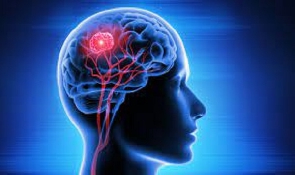In the field of medicine, it is critical to address the many facets of health. This article explores the complex relationship between brain tumors and their possible impact on sexual health, emphasizing the relationship that is sometimes missed—that is, its relationship to impotence.
Within the complex structure of the brain, tumors can arise as aberrant growths. They can be categorized as malignant (cancerous) or benign (non-cancerous), each of which poses different difficulties and has different effects on a person's health. The spectrum of symptoms and consequences that may develop depends critically on where a tumor is located in the brain.
The brain coordinates all physiological functions, including sexual function, acting as the body's command center. A tumor that settles inside the sensitive brain can interfere with the complex interaction between neurological and hormonal signals that support sexual wellness. Some brain tumors can affect how hormones are regulated, especially if they are located close to or involve
the pituitary gland.
Hormone imbalances that are essential for reproductive health could result
from this intervention. This hormonal imbalance in men can cause impotence, a disorder marked by difficulty getting or maintaining an erection.
The state of one's sexual health is essential to their general well-being. The possible impact on sexual function following a brain tumor diagnosis may exacerbate emotional and psychological difficulties. Patients must approach their healthcare journey with open communication with medical providers and be aware of these potential repercussions.
It is imperative that someone seeks immediate medical assistance if they fear they may have a brain tumor or notice changes in their ability to conceive. Comprehensive imaging studies, such as computed tomography (CT) scans or magnetic resonance imaging (MRI), are commonly used in diagnosis to identify the
precise position and features of the tumor.
The type and location of the tumor are among the many variables that determine how best to treat brain tumors and the impotence they cause. Medication, radiation therapy, and surgery are possible forms of treatment. To further enhance an individual's entire well-being, a holistic approach to care that takes into account the psychological and emotional components of sexual
health is recommended.
It is undeniably a difficult path to receive a brain tumor diagnosis, and part of receiving complete care is realizing the possible impact on sexual health. Open communication between patients and medical providers can help people deal with these difficulties more skillfully.
To manage the tumor and any potential consequences it may have on sexual function, early discovery, individualized treatment strategies, and a supportive healthcare team can play critical roles. The ultimate goal is to improve the quality of life for those who are impacted.
Health News of Friday, 12 January 2024
Source: Simon Badu, Contributor

















